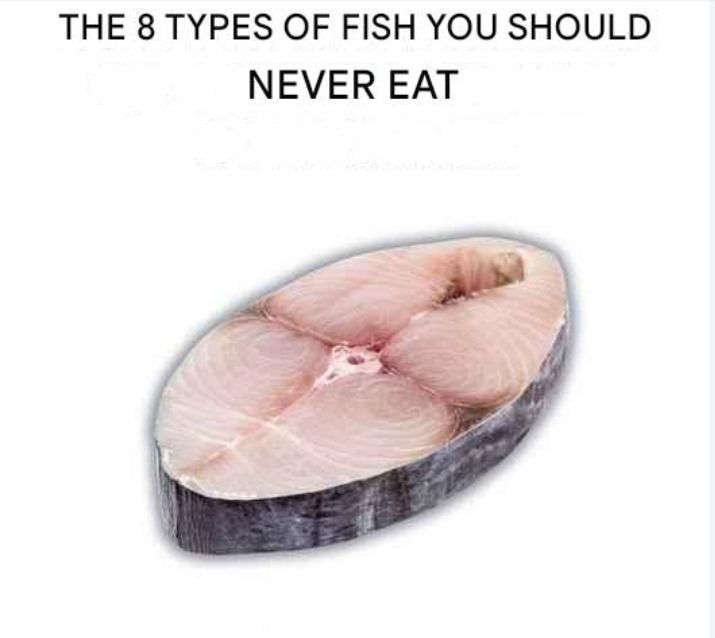ADVERTISEMENT
—
ADVERTISEMENT
## 🐡 3. **Orange Roughy**
### 🚫 Why Avoid:
* Lives up to 150 years, making it slow to reproduce and vulnerable to overfishing.
* High in mercury due to its long lifespan.
* Deep-sea trawling methods are **destructive to ocean habitats**.
### ✅ Better Alternative:
* Opt for **Pacific halibut** or **US-caught haddock** instead.
—
## 🐋 4. **Shark**
### 🚫 Why Avoid:
* Contains **extremely high mercury levels**.
* Sharks are **top predators**, and removing them disrupts ocean ecosystems.
* Many species are endangered due to overfishing and finning practices.
ADVERTISEMENT
### ✅ Better Alternative:
* Choose **sardines or anchovies** — small, sustainable, and omega-3 rich.
—
## 🐟 5. **Imported Catfish (Pangasius or Swai)**
### 🚫 Why Avoid:
ADVERTISEMENT
* Often farmed in **unsanitary conditions** with heavy antibiotic use.
* Environmental regulations in some exporting countries are weak or unenforced.
* Quality can be inconsistent.
### ✅ Better Alternative:
* Go for **U.S. farm-raised catfish**, which follows stricter regulations.
—
## 🐟 6. **Eel (Unagi)**
### 🚫 Why Avoid:
* Overfished and slow to reproduce.
* Farming practices can pollute surrounding waters.
* Populations of European and Japanese eels are in rapid decline.
### ✅ Better Alternative:
* Try **sustainably farmed trout or Pacific sardines** for a similar texture and flavor profile.
—
## 🐠 7. **King Mackerel**
### 🚫 Why Avoid:
* Known for **very high mercury levels**, especially dangerous for children and pregnant women.
* Large predatory fish accumulate more toxins over time.
### ✅ Better Alternative:
* Choose **Atlantic mackerel (North Atlantic, not Spanish or King)** — a smaller, cleaner, and more sustainable option.
—
## 🐙 8. **Imported Farmed Shrimp**
### 🚫 Why Avoid:
* Frequently linked to **unsanitary farming conditions** and forced labor concerns.
* Farming often causes **coastal pollution** and destruction of mangroves.
* Use of antibiotics and chemicals is common.
### ✅ Better Alternative:
* Look for **U.S.-farmed shrimp** or **wild-caught shrimp from Canada or the Gulf of Mexico**.
—
## 🌊 Why This Matters
Eating fish responsibly isn’t just about your personal health — it’s about the health of the oceans, too. By making informed choices:
* You reduce your risk of **mercury and chemical exposure**.
* You help combat **overfishing and habitat destruction**.
* You support **sustainable fishing practices and ethical labor conditions**.
—
## 🧠 Final Thoughts
Fish can still be a healthy part of your diet — but it pays to be selective. Avoiding these 8 species can help protect your body and the planet. When in doubt, consult resources like the **Monterey Bay Aquarium’s Seafood Watch** or look for labels such as **MSC (Marine Stewardship Council)** for guidance on sustainable seafood.
Small changes in our plates can lead to big changes in our oceans. 🌍🐟💙
—
Would you like a printable seafood buying guide or a sustainable seafood recipe roundup? Just let me know!
ADVERTISEMENT
